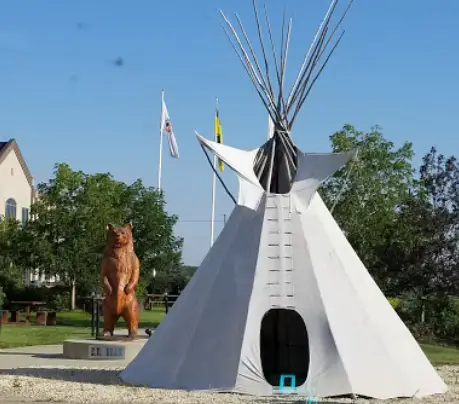Canada, a vast and diverse nation, is home to a rich tapestry of Indigenous cultures that have deep-rooted connections to the land. Indigenous communities across the country have a profound relationship with their environment, which is interwoven with their cultural practices, spirituality, and sustainability principles. If you're eager to learn about Indigenous environmental practices and culture in Canada, there are many opportunities to explore and appreciate these ancient pearls of wisdom. In this blog, we'll guide you through some of the ways to immerse yourself in this enlightening journey.
Indigenous Cultural Centers and Museums
Canada is home to numerous Indigenous cultural centers and museums that serve as gateways to understanding Indigenous culture, including their environmental practices. Places like the Canadian Museum of History in Gatineau, Quebec, and the Royal BC Museum in Victoria, British Columbia, offer exhibitions, workshops, and programs that shed light on Indigenous traditions, including their deep connection to the land.
Read more: 10 Best Outdoor Activities In Canada
Indigenous Cultural Festivals and Events
Throughout the year, various Indigenous cultural festivals and events take place across the country. These gatherings provide opportunities to witness Indigenous ceremonies, storytelling, and traditional practices related to the environment. The Gathering of Nations in Edmonton, Alberta, and the Manito Ahbee Festival in Winnipeg, Manitoba, are just a couple of examples where you can immerse yourself in Indigenous culture.
Indigenous Ecotourism Experiences
Indigenous ecotourism initiatives allow you to learn about Indigenous environmental practices directly from the source. These experiences often include guided nature tours, wildlife observation, and lessons on sustainable land use. Look for Indigenous-owned tour operators in different provinces, such as Nova Scotia's Glooscap Heritage Centre or British Columbia's Talaysay Tours.
Indigenous Land-Based Education Programs
Many Indigenous communities in Canada offer land-based education programs that teach about their environmental practices and cultural heritage. These programs are typically led by knowledgeable Elders and community members who share their wisdom and connection to the land. Examples include the Indigenous Knowledge and Wisdom Centre in Saskatchewan and the Mi'kmaq Environmental Learning Centre in Nova Scotia.
Read more: Major Cities In Canada
Indigenous Heritage Sites and Cultural Villages
Numerous Indigenous heritage sites and cultural villages are open to the public, offering insight into traditional Indigenous life and environmental practices. Places like the Saanich Historical Artifacts Society's Tseycum Longhouse in British Columbia and the Mi'kmaq Heritage Centre in Prince Edward Island are excellent destinations to explore.
Indigenous Language and Storytelling Workshops
Indigenous languages are key to understanding the cultural relationship with the environment. Participating in Indigenous language workshops and storytelling sessions helps you connect with the oral traditions that have been passed down for generations. These can often be found at cultural centers and educational institutions, such as the Cree Cultural Institute in Alberta.
Indigenous Community Engagement
Many Indigenous communities across Canada welcome visitors interested in learning about their culture and environmental practices. It's a good idea to reach out to specific communities, either directly or through cultural organizations, to inquire about opportunities to engage, participate, and learn.
Indigenous Art and Craft Markets
Art is an essential expression of Indigenous culture, often reflecting their deep connection to the environment. Indigenous art and craft markets, such as the Ottawa Inuit Children's Centre Annual Craft Sale or the Arctic Market in Whitehorse, provide a chance to appreciate and purchase art that showcases these connections.
Indigenous Educational Institutions
Several Indigenous educational institutions, like the First Nations University of Canada and the First Nations Technical Institute, offer courses and programs related to Indigenous culture, including their environmental practices. These institutions can be an invaluable resource for in-depth learning.
Online Resources and Webinars
For those who may not have the opportunity to travel to Indigenous communities in person, there are numerous online resources and webinars available. Websites, social media platforms, and virtual events hosted by Indigenous organizations and communities offer a wealth of information and insights.
Final Thoughts
In conclusion, exploring Indigenous environmental practices and culture in Canada is a rewarding journey that invites you to discover the profound relationship between Indigenous communities and the land they call home. These experiences provide an opportunity to gain wisdom, learn about sustainability, and appreciate the unique traditions and spirituality that have sustained Indigenous cultures for generations. Embrace this opportunity to engage with the ancient and vital knowledge that Indigenous communities have to offer, as they continue to be stewards of the land and guardians of the environment.



